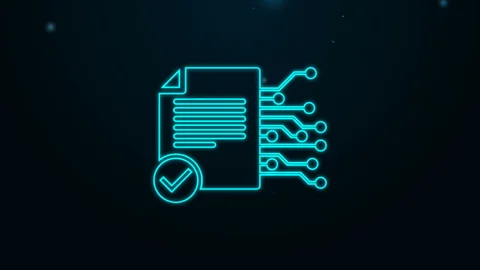The Future of Smart Contracts in Business Applications: A Paradigm Shift in Transactions
Explore how smart contracts are reshaping business transactions, streamlining operations, and enhancing security. Discover their current applications and future potential.
.png)
In the age of digital transformation, the integration of smart contracts into business applications is heralding a profound shift in the way transactions are conducted. Smart contracts, built on blockchain technology, offer automation, transparency, and trust, making them a game-changer for various industries. In this in-depth blog post, we'll explore the future of smart contracts, their impact on business applications, and the opportunities they bring to streamline operations, reduce costs, and enhance security.
Smart Contracts: Unraveling the Basics
Smart contracts are self-executing, programmable agreements that run on blockchain networks. They are designed to automatically facilitate, verify, or enforce the negotiation or performance of a contract. The key attributes of smart contracts include immutability, transparency, security, and autonomy.
Current Applications and Benefits
Smart contracts are already making waves across numerous sectors. We'll delve into their existing applications and the advantages they offer:
- Supply Chain Management: Smart contracts enable transparent tracking of products from manufacturing to delivery, reducing fraud and ensuring quality control.
- Financial Services: In finance, smart contracts can automate complex processes such as loan approvals, trade settlements, and insurance claims, reducing processing times and costs.
- Real Estate: Property transactions can become more efficient, with smart contracts automating tasks like title transfers, escrow services, and due diligence.
- Healthcare: Streamlining patient record management and insurance claims can improve healthcare efficiency and security.
- Legal Industry: In legal applications, smart contracts can automate contract execution, making legal processes more transparent and cost-effective.
Challenges and Future Potential
As with any emerging technology, smart contracts face challenges, including scalability, regulatory hurdles, and the need for widespread adoption. However, their potential to reshape various industries is undeniable:
- Cross-Industry Integration: Smart contracts are poised to become integral to a wide range of industries, from healthcare to energy, streamlining processes and reducing friction.
- Global Transactions: The use of blockchain and smart contracts can facilitate international transactions, eliminating the need for intermediaries, reducing delays, and lowering costs.
- Smart Legal Agreements: Legal professionals are exploring the concept of "smart legal agreements," which can self-execute based on predefined criteria, potentially revolutionizing contract law.
- IoT Integration: The Internet of Things (IoT) combined with smart contracts can automate actions and payments based on real-world data, creating a new realm of possibilities.
- DeFi and Tokenization: The future may see decentralized finance (DeFi) ecosystems relying heavily on smart contracts, and asset tokenization could change the way we invest and trade.
Smart contracts are not just the future but the present of business applications. Their potential to streamline operations, reduce costs, and enhance security has already begun transforming industries. As challenges are addressed and adoption grows, the impact of smart contracts on business applications will continue to shape the way we transact and conduct business in an increasingly digitized world. Whether you're a business leader, entrepreneur, or simply curious about the future of transactions, understanding the world of smart contracts is a necessity.


